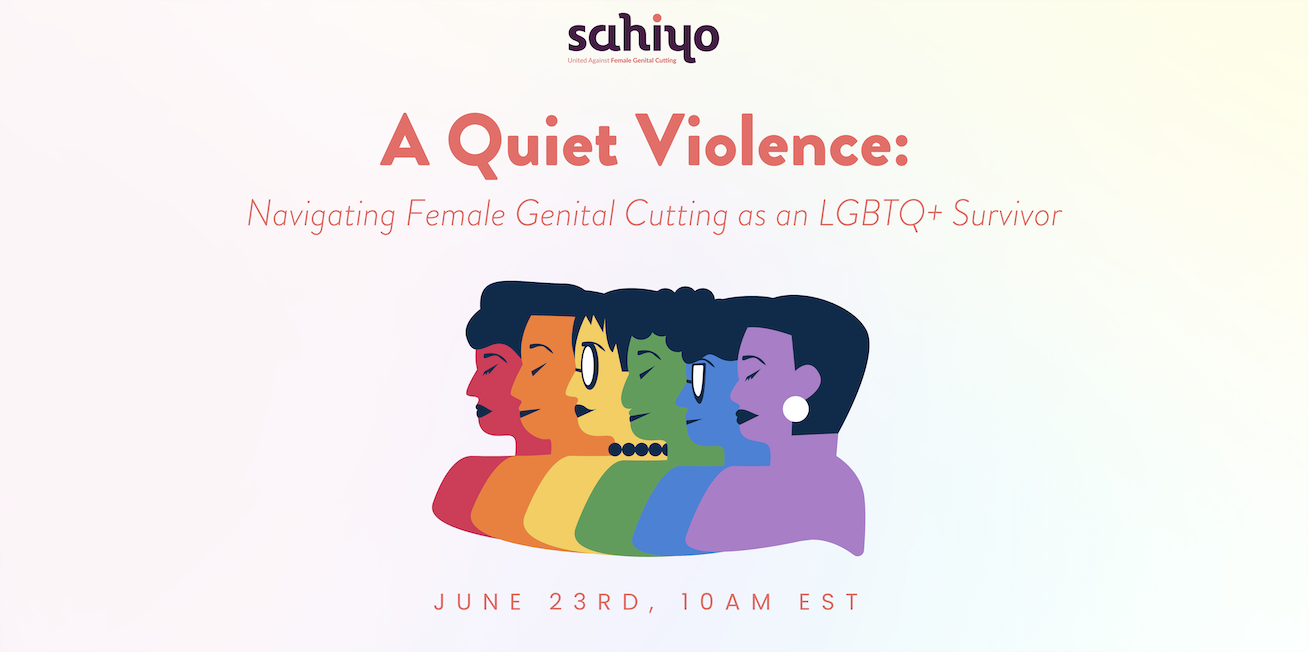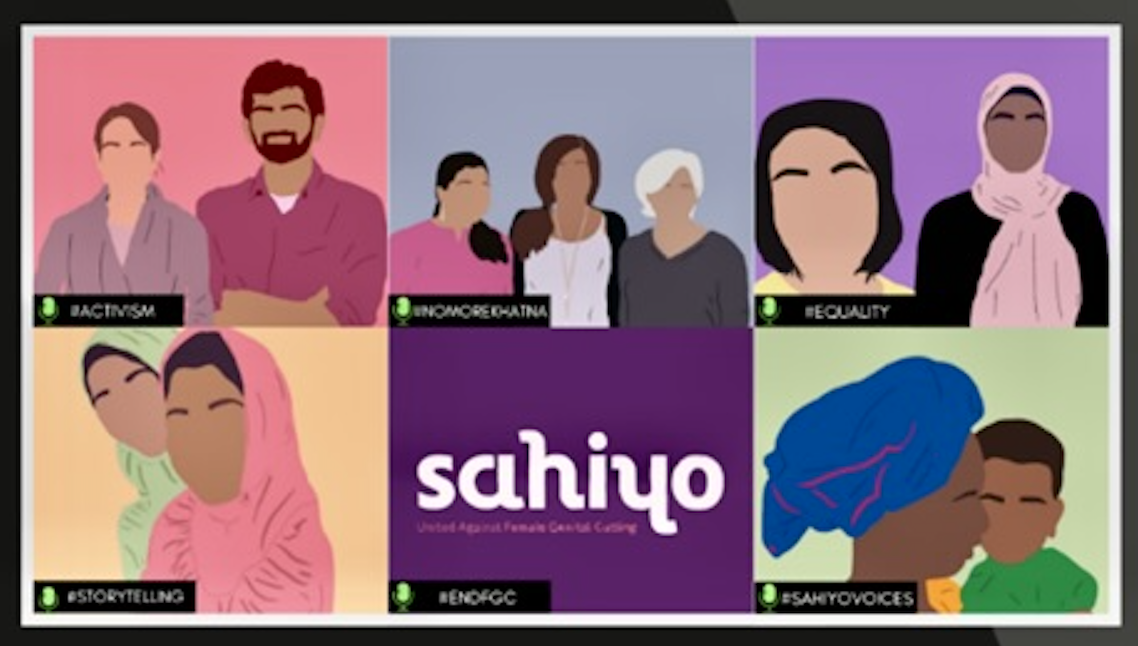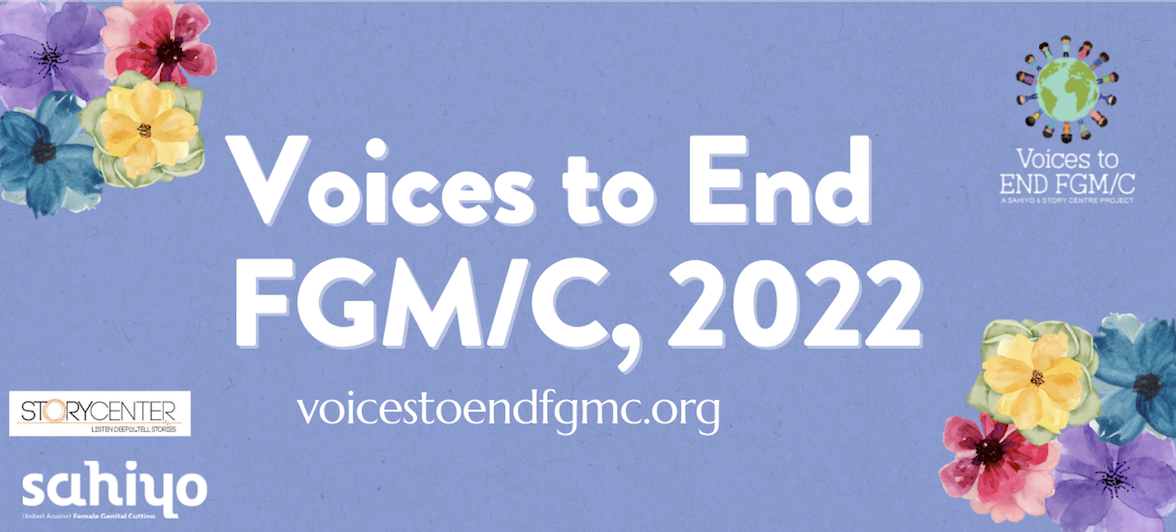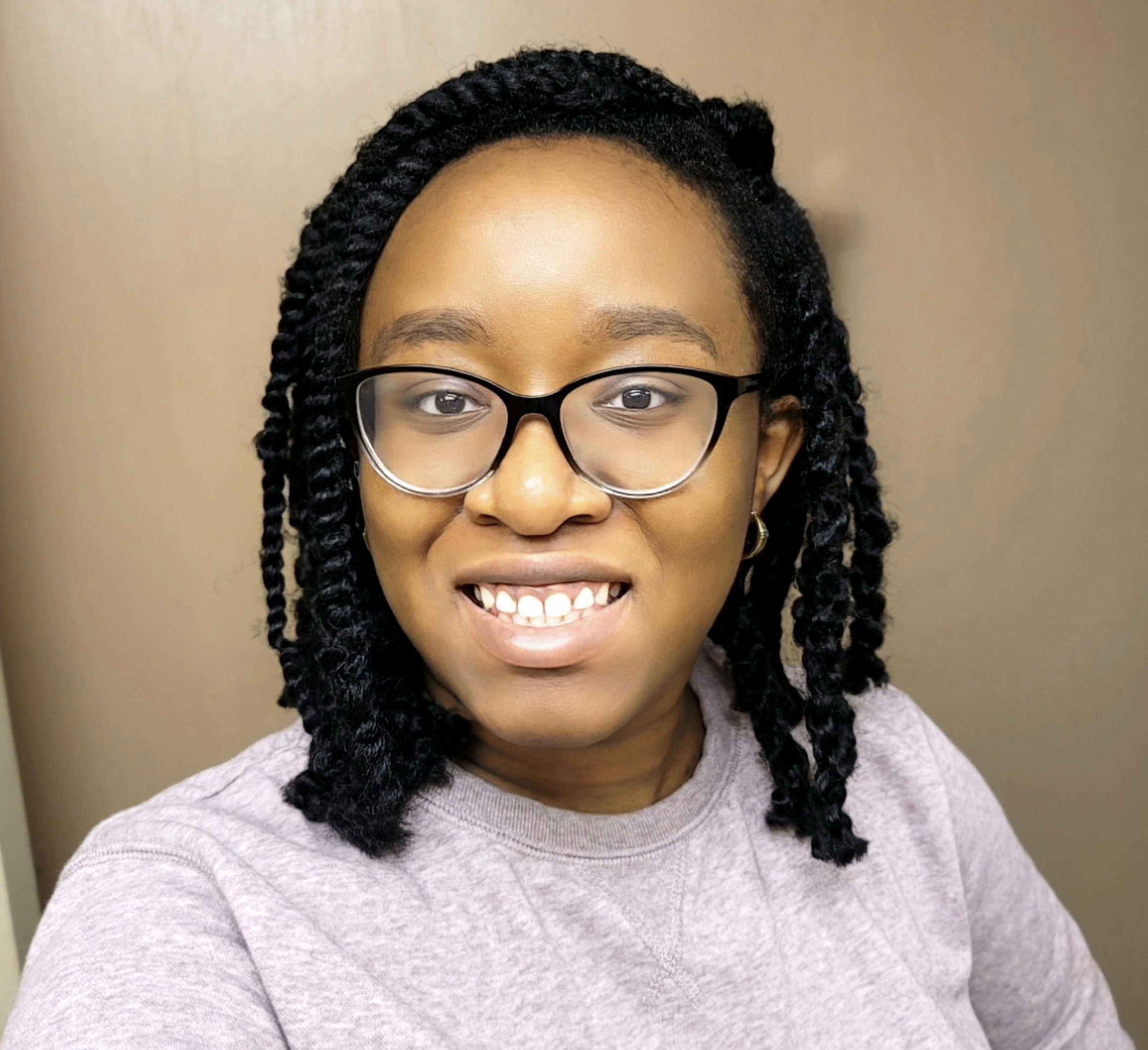On June 23rd, Sahiyo hosted their webinar A Quiet Violence: Navigating Female Genital Cutting as an LGBTQ+ Survivor in honor of LGBTQ+ pride month. The event was moderated by Sahiyo U.S. Advisory Board chair, internal medicine physician, and chief medical editor of EverydayHealth.com Dr. Arefa Cassoobhoy. Panelists included poet, playwright, filmmaker, and producer Dena Igusti (they/them), End FGC Singapore volunteer Afiqa (she/they), lawyer, activist, and writer Umme Kulsoon Arif (she/they), and pelvic and gynecologic surgeon Dr. Marci Bowers (she/her).
Oftentimes, LGBTQ+ and non-binary survivors of FGC are underrepresented and silenced in FGC activism, statistics, academic literature, and healthcare settings. Health organizations and anti-FGC advocacy movements frequently use gender binary terms when referring to FGC survivors, further propagating the harmful idea that FGC only impacts women. Panelists who identified as non-binary FGC survivors, Dena, Afiqa, and Umme, all shared stories of their own journey in understanding sexuality and gender as survivors of FGC, along with the harms of a false assumption that every survivor of FGC identifies as a woman. While it is true that FGC impacts those assigned female at birth, not all survivors identify with being a woman, womanhood, and heteronormative culture. Ascribing cisgender-heterosexual labels and expectations to non-binary survivors not only dismisses one’s identity and personhood, but also negatively impacts a survivor’s mental and physical health. Members of the panel advocated for the needs of unheard LGBTQ+ survivors, and raised awareness about steps anti-FGC organizations can take to be more inclusive, respectful, and welcoming to survivors of all gender identities.
The event began with two powerful videos from our 2022 Voices to End FGM/C cohort, which were recently released to the public. Dena Igusti’s On being a Nonbinary Survivor of FGM/C highlighted that the use of non-inclusive language and terminology in FGC-related statistics has led them to question whether their experiences can be validated as a gender non-conforming individual. This was followed by Afiqa’s eye-opening video Conversations with my Mother, which shared their experience of learning about FGC as a young girl. Afiqa often questioned why circumcision was celebrated for men versus women, and as they continued to question FGC and heterosexual norms, they realized their reality of gender and sexuality did not match what society demanded of them.
The lack of LGBTQ+ inclusive resources available in healthcare settings, therapy, and anti-FGC organizations has actively limited the amount of care non-binary FGC survivors can benefit from. Dena, Afiqa, and Umme often found they had to create their own language for themselves, as their experiences were not considered in the resources sought for their own healing. They also found that their experiences were often downplayed by society through invalidation and ignorance.
Following this discussion, Dr. Bowers stressed the importance of gender affirming care, which refers to medical interventions that support an individual's gender identity. With anti-FGC bills in Texas and Idaho that prohibit gender affirming care, healthcare as a right has been denied to trans individuals, which further deters LGBTQ+ individuals from seeking care. This has put LGBTQ+ youth at risk of facing wider health complications and neglect from the system. In addition, the reversal of Roe V. Wade has turned back the clock and denied rights to bodily autonomy. Trans people, just like cis people, deserve the right to safe spaces for healthcare, gender affirming care, and the right to choose what happens with their bodies.
The webinar ended on an important note: how allies can be supportive of LGBTQ+ survivors. Some of the many steps we can take as allies are as easy as amplifying voices, even if it just means adding your pronouns to your social media, or making public statements showing solidarity, such as “trans rights are human rights.” In terms of anti-FGC initiatives, it is essential to actively make an effort to utilize gender inclusive language and include non-binary folks, rather than restricting FGC to a woman’s issue. This applies to medical care as well. Healthcare providers can actively stand with their LGBTQ+ patients by implementing inclusivity in intake forms, wearing pronoun buttons, unlearning assumptions, educating each other, and making an effort to meet the patient where they are, thereby cultivating an open-minded and respectful environment.
One of the big takeaways I gathered from this webinar is the harmful impact of assuming one’s experience with gender-based violence (GBV). Not all LGBTQ+ survivors of GBV share similar experiences, as these are also shaped by intersectional factors such as culture, value, and religion, among others. In order to make an effort to understand one’s experience with survivorship, asking questions, showing support, and speaking up can make all the difference in helping LGBTQ+ survivors feel safe and welcomed. LGBTQ+ individuals, like cisgender, heterosexual ones, are well within their rights to expect respect, healthcare, and inclusion in order to facilitate their own healing and growth.
Watch the webinar here. Read the transcript from the webinar here.





